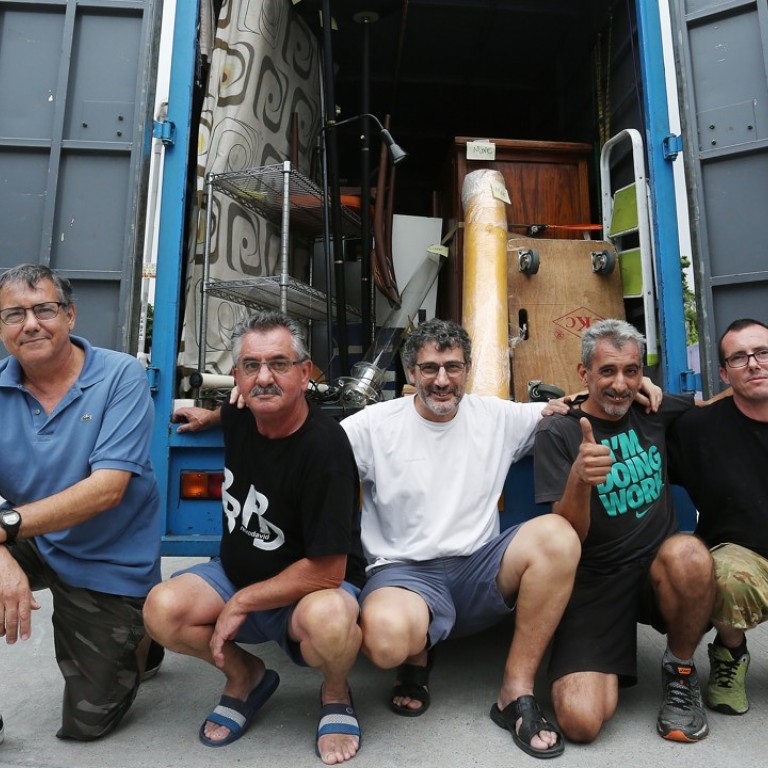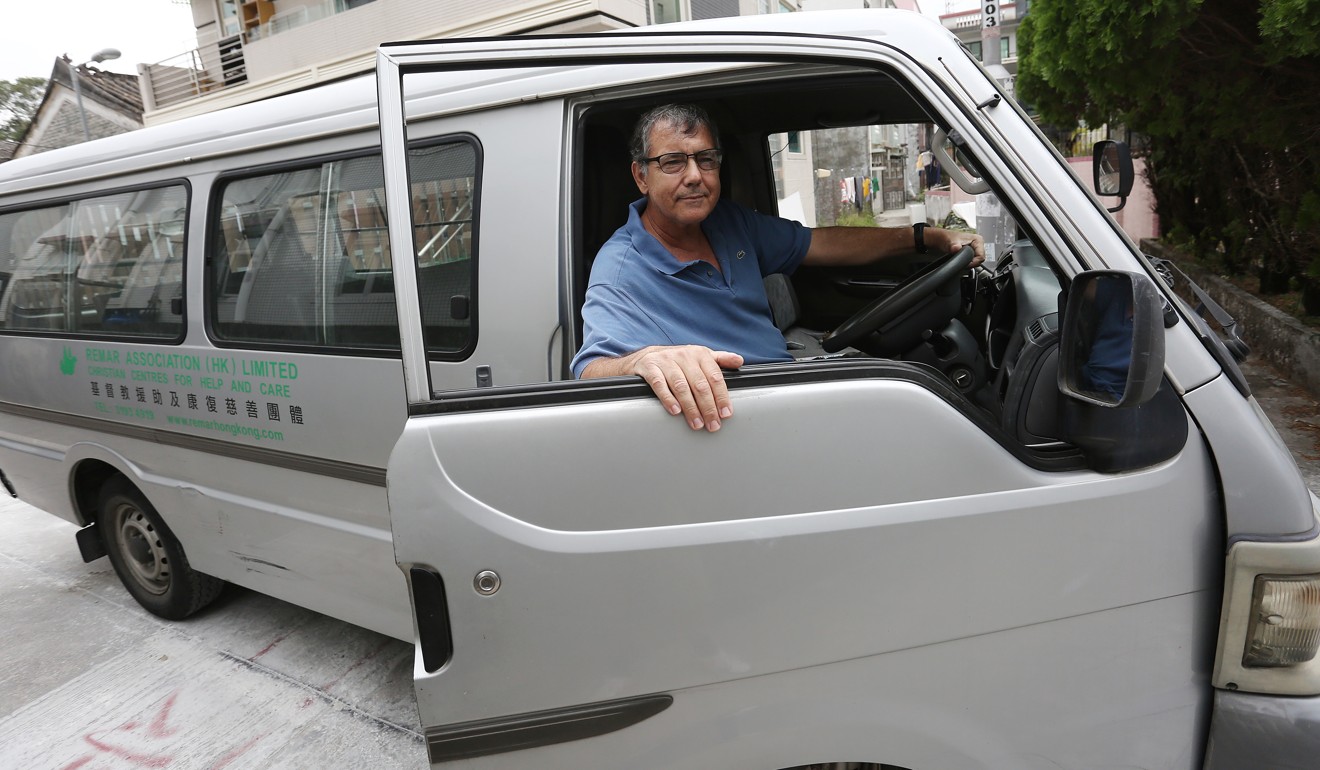
For this Hong Kong charity, where there’s a wheel, there’s a way to help the down-and-out
Remar Association uses Mitsubishi truck to pick up donated furniture and has plans for new van to transport drug addicts to Yuen Long rehab centre
John Silva and his teammates, many of them his countrymen, looked at the newly collected used furniture and housewares stacked inside their truck with interest.
“It has been our tool for survival,” said the Portuguese national, who runs the non-profit organisation Remar Association Hong Kong. He is referring to the Mitsubishi Canter parked near the association’s outpost in a Yuen Long village.
On its website, Remar describes itself as a “Christian charity organisation working for the rehabilitation and reinsertion into society of drug addicts, alcoholics, down-and-outs, the homeless and the needy in general”.
The association received funding two years ago from Operation Santa Claus, an annual donation drive organised by the South China Morning Post and RTHK, to purchase the truck to support its rehabilitation programmes for street sleepers, who in many cases are also drug addicts.
Number of rough sleepers in Hong Kong remains double the government estimate, experts say
Using the truck, the Remar Hong Kong volunteers pick up a wide range of donated items like furniture, home appliances, clothes and educational toys. After being repaired, these items are sold as second-hand goods to raise money for the organisation.
“It’s our main source of funds to support our rehabilitation centre,” Silva said, stressing the importance of maintaining their recycling business and self-sustaining model.
The vehicle also lets them run errands around the city.
“We are reaching out to the street sleepers in places like Yau Ma Tei and Sham Shui Po. We feed them and encourage them to come to our centre, where we offer free rehabilitation programmes,” Silva said, adding that drug addicts from different districts are also driven to their rehab centre in Yuen Long.
Volunteer Afonso Heaminio Machado Andorinha said: “We will go to places where there is a need.”

But travelling around the city all day has rapidly worn down the truck. According to the Remar volunteers, the vehicle will be decommissioned soon.
With a new round of funding from Operation Santa Claus, the association plans to buy a van to implement its “New Horizons” project, which aims to help recovering drug addicts stay off illegal substances.
“When they are getting OK, we start to give them responsibilities. They will start to work, to do small jobs. We will supervise them,” Silva said.
Hong Kong’s lack of rehabilitation services leave minority drug addicts with nowhere to turn
The association believes that work is an important part of the rehabilitation process, and that work can improve self-esteem.
The new van will be used mainly to bring drug addicts to Remar’s rehab centre in Yuen Long.
Silva said it was important to have their own transport.
“For the work we do, we need a new van,” he said.
Remar was founded in Spain by Miguel Diez and his wife as an evangelical organisation in 1982, and centres were later opened to help marginalised people. The Hong Kong branch was established in 1998.

